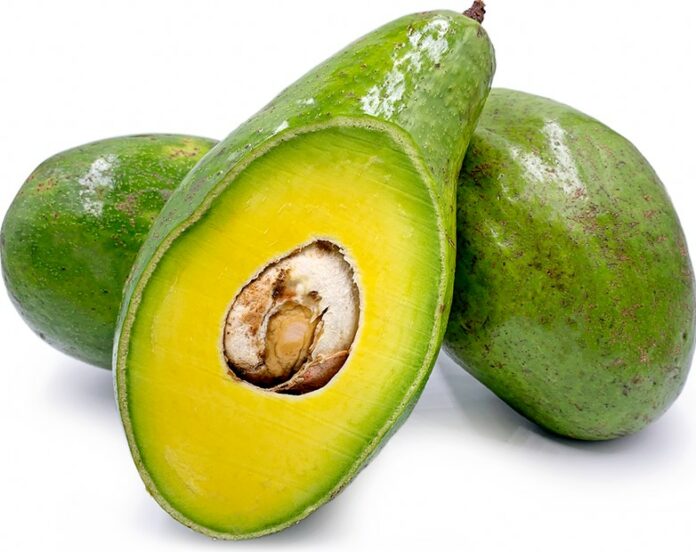What are avocados?
The popularity of avocado is down to its rich, creamy texture and mild flavour. The avocado, or Persea Americana, is a fruit that belongs to the family of lauraceae; a group that also includes members such as cinnamon and laurel. There are dozens of varieties of avocado, ranging in size, colour and texture. All are native to tropical climates and when harvested, the flesh softens to a buttery texture that has become extremely popular in everything from dips to desserts.
The fruit of domestic varieties has a buttery flesh when ripe. Depending on the variety, avocados have green, brown, purplish, or black skin when ripe, and may be pear-shaped, egg-shaped, or spherical. Commercially, the fruits are picked while immature, and ripened after harvesting.
Nutrients
Raw avocado flesh is 73% water, 15% fat, 9% carbohydrates, and 2% protein (table). In a 100 gram reference amount, avocado supplies 160 calories, and is a rich source (20% or more of the Daily Value, DV) of several B vitamins (such as 28% DV in pantothenic acid) and vitamin K (20% DV), with moderate contents (10-19% DV) of vitamin C, vitamin E, and potassium. Avocados also contain phytosterols and carotenoids, such as lutein and zeaxanthin.
1. Avocados are nutritionally rich
Avocados have been commended as an example of a nutrient dense food, with one half of the fruit counting towards your five-a-day.
Avocados are an excellent source of monounsaturated fat and vitamin E, and are a good source of folate. They also supply more soluble fibre than other fruit and contain a number of useful minerals including iron, copper and potassium.
2. May support heart health
Avocados are high in fat with 60 per cent of this being monounsaturated fats, which research suggests helps to protect against heart disease and lower blood pressure. They are also an excellent source of potassium, folate and fibre, all of which benefit the heart and cardiovascular system.
3. May help to lower cholesterol
The oils supplied by avocado include oleic acid and linoleic acid, these unsaturated fats are recommended as part of a balanced diet to help manage cholesterol.
4. May help to regulate appetite
There is no doubt that the calorie content of avocados is greater than other fruits and vegetables. However, an interesting study has shown that the fat and fibre content of avocados leads to feelings of satiety which helps regulate appetite.
5. May help keep eyes healthy
Alongside the benefits outlined above, avocado are a rich source of protective vitamin E as well as carotenes including lutein and zeaxanthin which are thought to help keep the eyes healthy.
Is avocado safe for everyone?
Some sensitive individuals may experience allergy to avocado. This includes an oral allergy which may be triggered by a cross-reaction to birch pollen. A rarer allergic response may occur if you have a latex allergy – if this is relevant to you refer to their GP for guidance.
Avocado, along with fruits including apples, peaches, raspberries and blueberries contain natural chemicals called salicylates. Some people are sensitive to these compounds and may experience an allergic reaction including skin rash and swelling.









